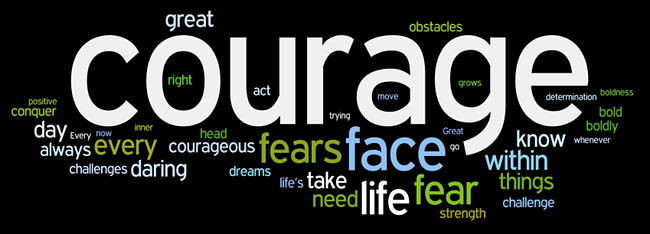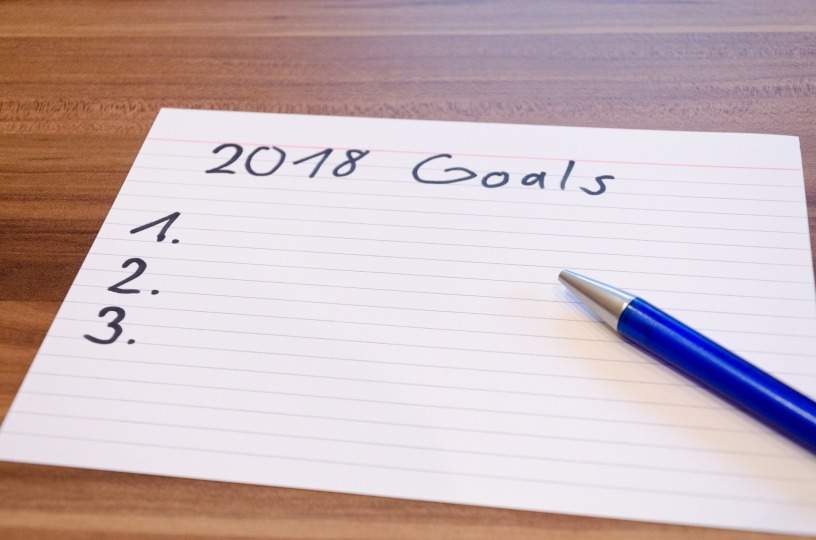So, this is a bit research-y, but bear with me, because that’s exactly what it is. The result of some research I recently conducted to give me a feel for the real problem, so I could better guide my research for helping to cope with it. I promise it’s the most research-y part of the series. And trust me, it only scratches the surface! It’s not long, and I do hope you learn something new…please post a comment to tell me if you do, and what it was!
The Problem: Stress
Stress is a pervasive disorder that discriminates against no one, regardless of socioeconomic status, race, ethnicity, sex, or age. What was originally designed for self-preservation and survival has, over time, become an illness of epidemic proportions. In fact, McNealus (2018) reports that “Over 70% of American adults say that they experience stress or anxiety daily, and that it impacts their life” (p. 16). Approximately twenty million Americans currently suffer from the physical, emotional and psychological effects of stress (Clinton, Hart and Ohlschlager, 2005). However, that is not how God intended stress to function, or more specifically, to malfunction.
Stress Was Meant for Good
Stress for Spiritual Growth. Although stress typically has a negative connotation due to its vast and varied adverse effects (see “EFFECT” below), it has benefits, as well. Clinton and Langberg (2011) point out that God can use stress to reveal sin in a woman’s life. Furthermore, Clinton, et al. (2005) teach that “God uses times of difficulty and adversity to stretch us and develop our character. This mechanism also keeps life exciting, enabling us to be creative and productive” (p. 163). Additionally, Clinton and Hawkins (2009, “Stress”) point out that “stress is a normal part of life and can be positive, alerting us to a problem area needing attention and helping us respond to it” (n.p.).
Stress for Survival. Clinton and Langberg (2011) write that “stress is the common term for general adaptation syndrome (GAS), or the fight or flight syndrome. It is the body’s natural response to threatening situations…” (p. 300).[1] When this fight or flight response is engaged, the body releases stress hormones, specifically adrenaline and cortisol. According to the Mayo Clinic (2016), adrenaline serves to boost energy levels and cortisol serves to suppress those bodily functions that it deems non-essential to survival, such as digestion and functions of the reproductive system. These responses are helpful if a person is in jeopardy, such as facing physical attack; after the threat has passed, these hormones return to normal levels and the body resumes normal functionality (Mayo Clinic, 2016).
When Stress Goes Bad
Unfortunately, when a person is under constant stress, the body begins to malfunction. Chronic stress, or stress that is prolonged, turns into a disease known as “distress” (Clinton, et al., 2005, p. 163). Some of the causes of distress include poor outlook, job stress, financial strain, juggling too many roles, and chronic illness. For a more detailed list of causes of and contributors to stress (“stressors”), including those particular to women, see “CAUSE,” below. Some of the adverse effects of long-term exposure to stress include headache, heart disease, substance abuse, and even diabetes. For more on these adverse effects, see “EFFECT,” below.
CAUSE
Causes of and Contributors to Stress
A few factors unique to women that contribute to stress include trying to maintain multiple roles, such as managing a career while being a wife and mother (Clinton & Langberg, 2011). However, some personalities lend themselves to stress more easily than others. Blom, M., Georgiades, A., Janszky, I., Alinaghizadeh, H., Lindvall, B., & Ahnve, S. (2009) would add that “common stress behaviors include constant perceived time urgency, impatience, or easily aroused irritation, as well as hostility and competitiveness” (p. 227). Those who have extremely driven or perfectionistic personalities, or exhibit the aforementioned behaviors not only experience increased stress, but it is likely that these individuals contribute to increased levels of stress in those around them.
Clinton, et al. (2005) Give a partial summary of causes for stress: “External Stressors include adverse physical conditions such as pain, illness, extreme temperatures, noise, foul air, hurried schedule; or stressful psychological environments such as work demands, abusive or conflictual relationships, the environment and unpredictable events” (p. 163). Clinton, et al. continue,
Internal stressors can also be physical such as infections, inflammation, hormonal imbalances, poor health habits; or psychological such as intense worry about finances, work, family and relationship problems, worrying about a harmful event that may or may not occur, an emptiness, negative attitude and feelings, personality traits such as perfectionism, trying to do too much, change and loss. (p. 163).
EFFECT
Adverse Effects and Symptoms of Stress
Stress frequently leads to physical, emotional, mental, relational and spiritual dysfunction and illness, ranging from seemingly minor effects, such as forgetfulness (Bosse-Smith, 2010) and weight gain (Mayo Clinic, 2016), to life-threatening results. “Women are more likely to experience physical symptoms of stress [than men]” (Clinton & Langberg, 2011, p. 300). Some of these physical symptoms include “headaches, an upset stomach, elevated blood pressure, chest pain, and difficulty sleeping. Stress can also affect a woman’s relationships adversely as well as her body, mind, and spirit” (Clinton & Langberg, 2011, p. 301). Chronic stress, or distress, can also diminish the body’s natural ability to ward of disease (King, 2013). King (2013) goes on to note that there is a correlation between chronic stress and diseases such as heart disease and cancer. In people with pre-existing heart conditions, acute stress can lead to a heart attack or stroke (Aldwin, 2007). Furthermore, McNealus (2018) cites stress as a possible cause of inflammation, which Aldwin (2007) reports, if left unchecked, can lead to autoimmune disease.
Adverse Effects and Symptoms of Stress During Childhood Development
The Centers for Disease Control and Prevention’s ACE (Adverse Childhood Experiences) study, conducted between 1995 and 1997, uncovered a correlation between toxic stress during childhood and future health problems, including obesity, heart disease, diabetes, and substance abuse. ACEs include divorce of parents, domestic violence and parental alcoholism (Gunnar, n.d.). Felitti, V. J., Anda, R. F., Nordenberg, D., Williamson, D. F., Spitz, A. M., Edwards, V., Koss, M. P., and Marks, J. S., conclude their results of the ACE study thus: “We found a strong graded relationship between the breadth of exposure to abuse or household dysfunction during childhood and multiple risk factors for several of the leading causes of death in adults” (p. 245). Further, in response to the ACE study, Edwards, V. J., Holden, G. W., Felitti, V. J., and Anda, R. F. (2013) found that “The interaction of an emotionally abusive family environment with the various maltreatment types had a significant effect on mental health scores” (p. 1453). In other words, childhood stress has lasting, harmful physical and emotional effects on a woman well into adulthood.
Stress, Childhood Development, and Future Outcomes
Gunnar (n.d.) reports that too much stress, for too long a period of time, can have “devastating consequences for developing brains.” Gunnar refers to such conditions as “toxic stress,” and teaches that toxic stress is “a severe, prolonged release of stress chemicals . . . often caused when a child lacks supportive and nurturing adults.” This type of toxic stress is capable of causing brain damage, killing and/or prohibiting the development of brain cells. Adults can often be the source of childhood stress (e.g., physical, emotional, verbal and/or sexual abuse inflicted by adults on children); this means the child actually must approach and even depend on the very person who is causing their severe stress. Complicating matters is that children have no innate coping skills for handling stress.
Closing Thoughts
Stress can be good, if we listen to our body and spirit. When we ignore them, we endanger ourselves physically, mentally, emotionally, spiritually and relationally. But there is hope! Stay tuned for some reasonable, realistic management techniques to keep your unhealthy stress levels down, and to cope with “negative stress” when it inevitably arrives on your doorstep.
Resources
Aldwin, C. M. (2007). Stress, coping, and development: An integrative perspective. New York, NY: Guilford Press. Retrieved from https://ebookcentral-proquest-com.ezproxy.liberty.edu
Blom, M., Georgiades, A., Janszky, I., Alinaghizadeh, H., Lindvall, B., & Ahnve, S. (2009). Daily stress and social support among women with CAD: Results from a 1-year randomized controlled stress management intervention study. International Journal of Behavioral Medicine, 16(3), 227-235. doi: 10.1007/s12529-009-9031-y
Bosse-Smith, L. (2010). I want my life back!: Life management for busy women. Nashville, TN: Abingdon Press.
Centers for Disease Control and Prevention. (2016). About the CDC-Kaiser ACE Study. Violence Prevention. Retrieved from https://www.cdc.gov/violenceprevention/acestudy/about.html
Clinton, T., Hart, A. and Ohlschlager, G. (2005). Caring for people God’s way: Personal and emotional issues, addictions, grief and trauma. Nashville, TN: Thomas Nelson, Inc.
Clinton, T. and Hawkins, R. (2009). The quick-reference guide to biblical counseling. Grand Rapids, MI: Baker Books.
Clinton, T., & Langberg, D. (2011). The quick-reference guide to counseling women: 40 topics, spiritual insights and easy-to-use action steps. Grand Rapids, MI: Baker Books.
Edwards, V. J., Holden, G. W., Felitti, V. J., & Anda, R. F. (2003, August). Relationship between multiple forms of childhood maltreatment and adult mental health in community respondents: results from the adverse childhood experiences study. American Journal of Psychiatry, 160(8), 1453-60. doi: 10.1176/appi.ajp.160.8.1453
Felitti, V. J., Anda, R. F., Nordenberg, D., Williamson, D. F., Spitz, A. M., Edwards, V., Koss, M. P., & Marks, J. S. (1998). Relationship of childhood abuse and household dysfunction to many of the leading causes of death in adults. American Journal of Preventive Medicine, 14(4), 245-258.
Gunnar, M. (n.d.). Child development core story, part 3: Stress. Project for Babies. Retrieved from https://developingchild.harvard.edu/resources/project-for-babies/
King, L.A. (2013). Experience psychology (2nd ed.). New York, NY: McGraw-Hill Education.
McNealus, K. (2018, February). Let’s talk about stress. Exceptional Parent Magazine, 16-19. Retrieved from https://link.galegroup.com/apps/doc/A530360703/HWRC?u=vic_liberty&sid=HWRC&xid=a6bef996
Mayo Clinic. (2016). Stress management. Healthy Lifestyle. Retrieved from https://www.mayoclinic.org/healthy-lifestyle/stress-management/in-depth/stress/art-20046037
[1] The concept of GAS was founded by Hans Selye in 1950.










